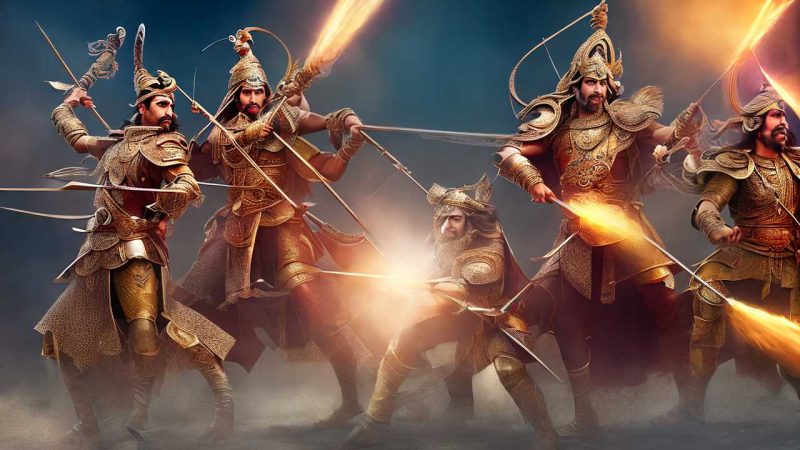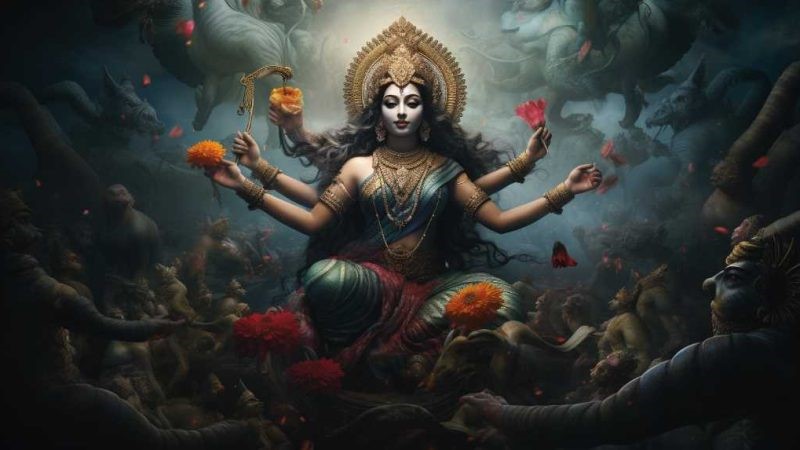The Power of Love According to Ramana Maharshi

Ramana Maharshi, a well-respected Indian sage, had a unique take on love. He believed that love is much more than just a feeling. Instead, he saw it as a powerful tool for spiritual growth and a way to break down the ego, which often gets in the way of understanding ourselves. Maharshi thought that love could lead people to the ultimate truth about who they are.
To really get what Maharshi was saying, it’s important to realize that he wasn’t talking about love in the usual sense. He meant something much deeper that can actually help us on our journey to find inner peace and freedom. This idea is important because it suggests that love can help us ask the right questions about ourselves and break free from what holds us back.
Maharshi’s approach to love can change the way we think about our own spiritual journey. Instead of seeing love as just an emotion, we can start to see it as a language that everyone understands, one that can guide us to a better understanding of ourselves and the world around us. It’s like he’s saying that love is a key that can unlock the secrets of our minds.
In a way, Maharshi is offering a fresh perspective on how to find true happiness and wisdom. By using love as our guide, we can navigate the complex path of self-discovery and get closer to the peace we all seek. This is a powerful message for anyone interested in spirituality and personal growth.
Unveiling Maharshi’s Philosophy
Ramana Maharshi was a philosopher who followed the ancient Indian teaching called Advaita Vedanta. He believed that the purest type of love is actually a part of who we really are, and that it’s the same as the divine, or godly, essence. Maharshi taught that if we want to really understand ourselves, we should ask the question, ‘Who am I?’ He said that by asking this, we can realize that we’re not different from the ultimate truth of the universe, which he called Brahman. According to him, when we love in the truest sense, we’re not just connecting with another person, but we’re experiencing a unity with everything, without letting our personal egos get in the way.
Maharshi’s ideas help us see love differently. Instead of thinking about love as just a feeling, he encourages us to see it as a sign that everything in the universe is connected. This way of thinking can change how we view love, making it about feeling united with all that exists, not just one person or thing.
To illustrate this, imagine you’re enjoying a sunset. According to Maharshi, the love you feel in that moment isn’t just about the beauty you’re seeing, but it’s about feeling a deep connection with the entire universe that the sunset is a part of. That’s the kind of love Maharshi was talking about – a feeling that brings us closer to the truth that we’re all part of something much bigger than ourselves.
Love as Universal Language
Love is like a common language that everyone can understand. It doesn’t matter where you’re from or what language you speak; love goes beyond all that. Ramana Maharshi, a spiritual teacher, believed love was more than just a feeling. He thought it was what connected everyone and everything. Instead of just being happy or sad, love to him was about feeling connected to other people and the world. When we show love, we can get along and understand each other better, even if we’re different in many ways.
Maharshi said that when we love, we bring people together and help them see that we’re not that different after all, and we’re all part of something bigger.
To give an example, when someone volunteers to help others in need, they are showing love through actions, not just words. This kind of love can create friendships and trust between strangers. It’s about doing something meaningful for someone else, which can make a big difference in their life. Love, in this way, is powerful and can change how we see and treat each other, making us feel like we’re all part of one big family.
Self-Inquiry and Heart-Centeredness
Delving into the heart of our being through self-inquiry can unveil a profound connection to the essence of love, as advocated by spiritual teachers like Ramana Maharshi.
Ramana Maharshi, a revered sage, emphasized the significance of self-inquiry as a pathway to realizing the Self, which he equated with the heart, the source of love and truth. This introspective practice encourages individuals to discern the real ‘I’ by persistently questioning ‘Who am I?’ beyond superficial identities.
Heart-centeredness, in this context, is the experiential understanding that our true nature is not separate from the universal fabric of love. Through diligent self-inquiry, one may dissolve the ego, revealing a heart that resonates with compassion and unity, aligning with Ramana Maharshi’s teachings on the transformative power of love.
Dissolving the Ego Through Love
In Ramana Maharshi’s teachings, a key idea is to overcome the ego with love. He believed that what we think of as our individual self is just an illusion. Instead, we are all part of a larger, pure awareness. Love, especially the kind that doesn’t expect anything back, can break down this false idea. When we fully accept love as the ultimate truth, we start to let go of our ego. This isn’t about denying who we are; it’s about truly understanding ourselves. As we do this, our sense of ‘I’ grows bigger until it fades away into a great sea of love, which is what we really are.
Here’s why this is important: when we focus on love, we become less self-centered and more connected to others. This isn’t just about feeling good; it’s about changing how we see ourselves and the world. It’s like when you help someone without wanting a thank you—you’re not just doing a good deed, you’re also becoming a part of something bigger.
So, how can we practice this? Start by being kinder, not only to others but to yourself as well. For instance, instead of getting upset over a mistake, treat it as a chance to learn. And when you see someone in need, help them out. It’s not about the recognition; it’s about feeling that connection.
Remember, it’s not about big gestures; it’s the small acts of love that add up. Just like how a drop of water can eventually fill a bucket, every act of kindness helps dissolve the ego a little more.
In short, embracing love as the main part of our lives can help us move past our ego. This doesn’t happen overnight, but with patience and practice, we can experience a more connected sense of being.
Attaining Liberation With Compassion
Ramana Maharshi believed that being compassionate is not just the right thing to do, but it is also crucial for spiritual growth. He taught that understanding and feeling connected to everything is part of realizing your true self. When you reach this deep level of understanding, you stop seeing yourself as separate from others. This breaks down the walls that your ego builds and naturally makes you feel love and care for everyone.
Maharshi said that genuine compassion comes from seeing yourself in other people, which leads to helping others without wanting anything in return. This kind of giving is a sign that a person is spiritually mature and is a key step toward moksha, which is being free from the endless cycle of being born over and over again.
For example, when you help someone without expecting a ‘thank you’ or any reward, that’s the kind of selfless action Maharshi was talking about. It’s like when you see someone who has fallen and you immediately reach out to help them up — you’re not thinking about getting praised; you’re just acting out of concern for them. That moment of helping is both simple and powerful because it shows a connection between you and the other person.
It’s these moments that Maharshi believed would lead us to true freedom and peace.
Conclusion
Ramana Maharshi, a respected spiritual teacher, believed that love is a powerful tool that can help us grow spiritually. Instead of using complex words, he taught that asking ourselves deep questions and focusing on love can break down our ego. This is important because it helps us feel connected to others and be kinder. He said that if we make love the most important thing in our lives, we can let go of our usual desires and reach a state of freedom. In this state, we understand that at the core, everyone is the same.
For example, if someone practices putting love first by helping others without expecting anything in return, they start to lose their selfish tendencies. This is active love in action. It’s like when someone recommends a book that changed their life – they do it because they care, not for personal gain.
In short, by focusing on love, we can find true happiness and a sense of peace. This idea is simple but powerful, and it’s at the heart of Maharshi’s message.






